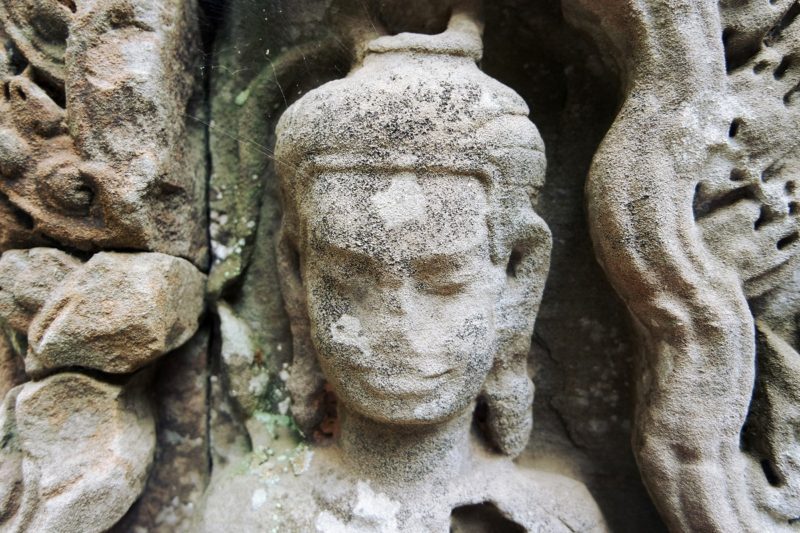The following passage illustrates what it means to come in to the present moment, how to do it, and what the effects of doing so might be. It occurs just before the novel’s climax, when the Schlegel sisters spend the night, without permission, at the novel’s eponymous country home – Howard’s End. The secret to Helen’s erratic and evasive behaviour has been revealed and this in turn has thrown Margaret’s marriage into critical tension once more. Uncertainty, loss and danger lie before them and yet they share this moment of peace:
‘The present flowed by them like a stream. The tree rustled. It had made music before they were born, and would continue after their deaths, but its song was of the moment. The moment had passed. The tree rustled again. Their senses were sharpened, and they seemed to apprehend life. Life passed. The tree rustled again.
“Sleep now,” said Margaret.
The peace of the country was entering into her. It has no commerce with memory, and little with hope. Least of all is it concerned with the hopes of the next five minutes. It is the peace of the present, which passes understanding. Its murmur came ‘now’, and ‘now’ once more as they trod the ground, and ‘now’ as the moonlight fell upon their father’s sword. They passed upstairs, kissed, and amidst the endless iterations fell asleep.’
E. M. Forster, Howard’s End
The sound of the tree brings the two women into the present moment – and they are able to stay with the present moment; this is the basic premise of attentional training in mindfulness meditation. The object of attention might be the breath, the body or as in this case, sound. The effect is that ‘Their senses were sharpened, and they seemed to apprehend life.’ Meditation offers the possibility of glimpses of reality – to see things as they truly are – to achieve a kind of awakening (there are many terms for this in buddhist traditions, satori or prajñā are two examples). Forster reminds us that the present moment is always passing – it’s ‘now’ and ‘now’ and ‘now’. The music or ‘song’ of the tree might be something beautiful, but impermanence applies to all things – to the pleasant and unpleasant alike.
In mindfulness meditation practice, whatever thoughts, feelings or sensations occur, we aim to come back to ‘now’ and ‘now’ and ‘now’; we merely observe or hear or feel without involving ourselves in the stories or origins of those thoughts and feelings. We let them be and come back to ‘now’ and ‘now’. In Full Catastrophe Living, Kabat-Zinn boldly proclaims that ‘you have only moments to live’ – because this moment, right now, is your life – where is your attention?
The events leading up to this moment are going to have serious consequences, and so there is plenty for the sisters to be anxious about. But Forster doesn’t give the possibility of rumination to his characters, instead they access ‘The peace of the present, which passes understanding’. This peace might be seen as awareness itself – that part of ourselves that is separate to thoughts and feelings, but that can observe them detachedly. It’s also the part that allows us to let thoughts go, something that many people struggle to do, and why they might have trouble sleeping.
The part of our mind that attaches to thoughts and is interested in them, attending to them, believing them, does not want us to let go, it wills us to pay attention to negative thoughts. But using meditation to tap into awareness – the frame or space in which those thoughts occur, and that may take consistent practice to reach – is able to let thoughts go – because that’s what thoughts do anyway, come and go.
Earlier in the novel, Margaret tries to illustrate to her husband the gift of being able to ‘notice things’ and so bring him out of his tunnel vision. He believes this to be a waste of time, and as ‘frittering away the strength’. Margaret points out that it in fact does the opposite: ‘It’s enlarging the space in which you may be strong.’
However turbulent or painful thoughts and feelings might be, awareness is the neutral space that transcends ‘understanding’. Sometimes described as the sky, the space in which weather events occur, awareness is expansive, objective and available for us to draw on for strength in even the most difficult circumstances.



Eloquently expressed. Insightful.